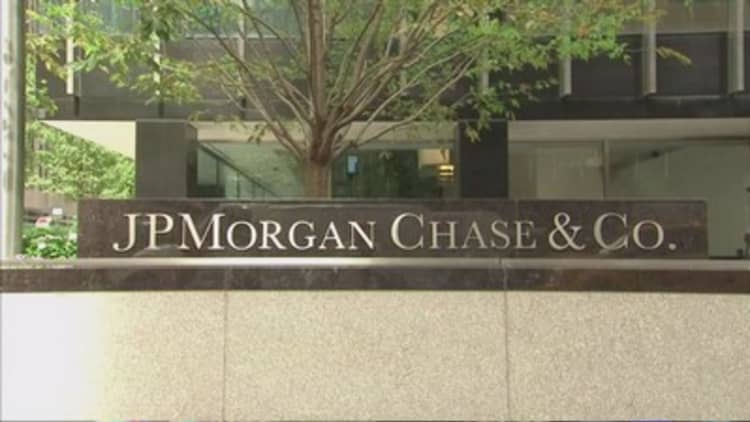By the end of next year, 4.8 billion people globally will use a mobile phone, and smartphone subscribers will represent 46 percent of the global population, according to predictions by Forrester. The growth will be driven primarily by Africa and Asia.
Among the key findings: In 2016, consumers will begin to demand a more streamlined experience on mobile devices, and brands will start to notice. U.S. and European consumers will begin to catch up with their more demanding Asian counterparts when it comes to how they interact with companies on mobile.
"Consumers will continue to spend most of their time in only a few apps (e.g. Facebook, Google Maps, WeChat), but will increasingly turn to aggregation apps and a handful of platforms to get the content and services they need," Forrester analyst Julie Ask said.
Read More Privacy will hit tipping point next year: Study
Those platforms will deliver a stream of relevant content and services, so users never have to leave the app. For providers without the scale or stickiness of a social network, or the utility of a Google Maps, expect user interaction to fall off a cliff in 2016.
Forrester also expects more than 25 percent of companies to change how they use mobile when it comes to interacting with customers. Also, they will get better at measuring and tracking the impact of mobile on and offline.
For brick-and-mortar retailers, mobile will influence about $1 trillion in spending in the U.S. this year.
An example done well, according to Forrester, is Facebook's Atlas partnership that connects mobile ads with in-store point-of-sales systems by tracking consumers across their various devices. Expect smart merchants to increasingly adopt this type of technology, Forrester said.
And don't discount Google: "Google has some of the best cross-channel tracking capabilities because they own the mobile operating system on most smartphones, plus Maps, Google Now, Search, Gmail, etc., that offer so much information around purchase intent plus location," Ask said.

Mobile and tablet commerce will hit $142 billion in the U.S. and $92 billion in the European Union, Forrester said, representing 38 percent and 32 percent of online transactions, respectively.
Convenience, trust and new technology will drive adoption of digital wallets like Apple Pay and Android Pay.
Read More
Enterprise apps to hit a new high
Next year, more than 60 percent of people who control companies' decisions and budgets around mobile expect to invest in apps that will boost productivity. Employees at global enterprises who use these solutions for work are 50 percent more likely to report that colleagues are happy, and 40 percent more likely to report customer satisfaction.
Forrester puts brick-and-mortar businesses Walgreens and Target among the smartest retail leaders when it comes to developing employee mobile apps, along with Amazon and eBay.
The travel, financial services and insurance industries are also aggressively adopting mobile to support employees. A few leaders include SPG, Marriott, United, American Airlines, Bank of America, Progressive and State Farm.
Internet of Things and beyond
Digital platforms will leverage data from smartphones and devices connected to the Internet of Things to improve services. Next year, expect Amazon, Apple and Google to invest aggressively in product and service development to capitalize on the trend.
When it comes to delivering services when and where consumers want them, Forrester expects alternative ecosystems, beyond Google's Android and Apple's iOS, to emerge. That's already starting to happen, with relatively new apps such as WeChat in China, and Facebook Messenger in the U.S. accumulating vast audiences and rich data about consumers.
"In 2016, these ecosystems will grow as brands look to serve existing customers in context and developers flock to platforms with large audiences," Forrester said.
In additional to the usual mobile suspects Apple, Facebook and Google, big players might also include some unexpected players like Microsoft, Amazon, or some companies abroad, according to Ask. Alibaba, Xiaomi, Baidu, and Tencent are all potential players in the war to control new and emerging ecosystems.
Mobile M&A to skyrocket
Internet giants like Facebook and Google will look to expand their mobile audiences via acquisitions in order to reach specific demographic segments, geographies or markets.
Forrester suggests streaming music player Spotify would be an ideal target, and that Yahoo could be of interest to a major digital platform.
Enterprise mobile companies will consolidate, and expect enterprise tech giants like Adobe, Amazon, , HP, and Salesforce to shop for smaller players like enterprise mobile application companies like AnyPresence, Appcelerator, Kinvey, Kony, Xamarin or Xively.
Big cloud companies like Salesforce and Adobe will look to invest in mobile and automate it. Forrester predicts that in 2016 marketing tech vendors will find themselves in an arms race to provide automated products, data driven insights and deliver engaging in-app experiences.
Mobile marketing start-ups that could be of interest include Kahuna, Localytics, Swrve and Urban Airship.


